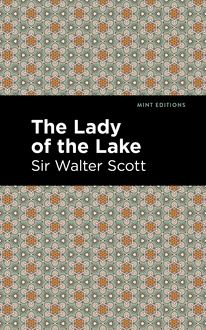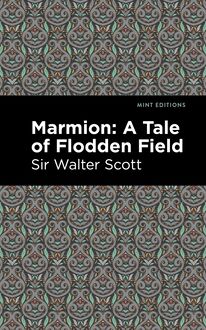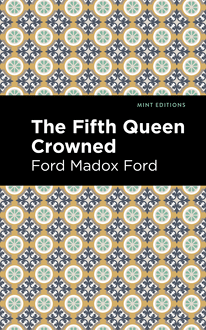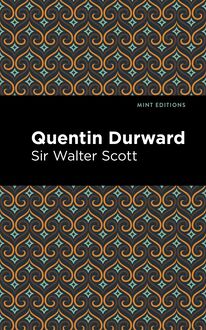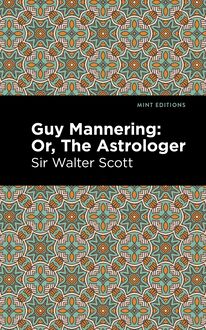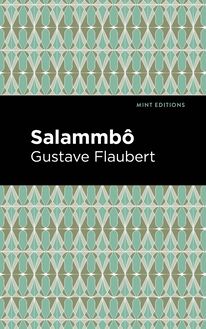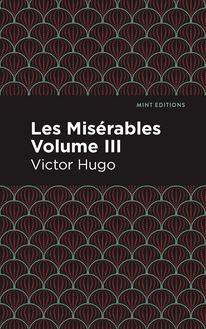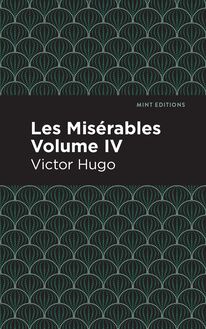-
 Univers
Univers
-
 Ebooks
Ebooks
-
 Livres audio
Livres audio
-
 Presse
Presse
-
 Podcasts
Podcasts
-
 BD
BD
-
 Documents
Documents
-
- Cours
- Révisions
- Ressources pédagogiques
- Sciences de l’éducation
- Manuels scolaires
- Langues
- Travaux de classe
- Annales de BEP
- Etudes supérieures
- Maternelle et primaire
- Fiches de lecture
- Orientation scolaire
- Méthodologie
- Corrigés de devoir
- Annales d’examens et concours
- Annales du bac
- Annales du brevet
- Rapports de stage
La lecture à portée de main
Vous pourrez modifier la taille du texte de cet ouvrage
Découvre YouScribe en t'inscrivant gratuitement
Je m'inscrisDécouvre YouScribe en t'inscrivant gratuitement
Je m'inscrisEn savoir plus
Vous pourrez modifier la taille du texte de cet ouvrage
En savoir plus

Description
After ascending to the throne at a young age, and ruling Protestant subjects while personally practicing Catholicism, Mary, Queen of the Scots was hardly given a chance to be an influential leader. Other rulers, and sometimes her own subjects, looked down on her for her religious differences. Which is why, Queen Mary’s relatives, her Protestant subjects, and Lady Lochlevan locked her in Lochlevan castle at their first chance. Having been raised in solitude, and often sent away for extended stays the castle, Mary had little patience for her imprisonment. Stuck there with her ladies-in-waiting, Mary bides her time, planning an escape. Meanwhile, Roland Graeme, a young man with mysterious origins visits the castle and immediately falls in love with Catherine, Mary’s lady-in-waiting. However, the love affair grows complicated when Roland gets into a feud with Catherine’s twin brother. While Roland struggles with his feelings, Catherine and Mary plan a daring escape, recruiting the help of a surprising ally. Sequel to The Monastery, Sir Walter Scott’s The Abbot is a historical adventure novel. First published two-hundred years ago in 1820, The Abbot earned commercial success and the approval of critics, evening ranking as high as one of Scott’s most popular novels, Waverley. Praised for its outstanding character portrayals, critics were enamored by Catherine’s striking depiction and Queen Mary’s humorous sarcasm. With the portrayal of an iconic and popular royal, along with the impressive description of the setting, this work of historical fiction is perfect for the modern reader. Featuring plot twists, betrayals, battles, romance, and drama, Sir Walter Scott’s The Abbot is full of exciting action and rich prose that remains to entertain even modern audiences. This edition of The Abbot by Sir Walter Scott now features a new, eye-catching cover design and is printed in a font that is both modern and readable. With these accommodations, this edition of The Abbot crafts an accessible and pleasant reading experience for modern audiences while restoring the original mastery and drama of Sir Walter Scott’s literature.
Sujets
Informations
| Publié par | Mint Editions |
| Date de parution | 14 mai 2021 |
| Nombre de lectures | 0 |
| EAN13 | 9781513285467 |
| Langue | English |
| Poids de l'ouvrage | 2 Mo |
Informations légales : prix de location à la page 0,0500€. Cette information est donnée uniquement à titre indicatif conformément à la législation en vigueur.
Extrait
The Abbot
Sir Walter Scott
The Abbot was first published in 1820.
This edition published by Mint Editions 2021.
ISBN 9781513280448 | E-ISBN 9781513285467
Published by Mint Editions ®
minteditionbooks .com
Publishing Director: Jennifer Newens
Design & Production: Rachel Lopez Metzger
Project Manager: Micaela Clark
Typesetting: Westchester Publishing Services
C ONTENTS I II III IV V VI VII VIII IX X XI XII XIII XIV XV XVI XVII XVIII XIX XX XXI XXII XXIII XXIV XXV XXVI XXVII XXVIII XXIX XXX XXXI XXXII XXXIII XXXIV XXXV XXXVI XXXVII XXXVIII
I
Domum mansit—lanam fecit.
—Ancient Roman Epitaph
She keepit close the hous, and birlit at the quhele.
—G AWAIN D OUGLAS
The time which passes over our heads so imperceptibly, makes the same gradual change in habits, manners, and character, as in personal appearance. At the revolution of every five years we find ourselves another, and yet the same—there is a change of views, and no less of the light in which we regard them; a change of motives as well as of actions. Nearly twice that space had glided away over the head of Halbert Glendinning and his lady, betwixt the period of our former narrative, in which they played a distinguished part, and the date at which our present tale commences.
Two circumstances only had imbittered their union, which was otherwise as happy as mutual affection could render it. The first of these was indeed the common calamity of Scotland, being the distracted state of that unhappy country, where every man’s sword was directed against his neighbour’s bosom. Glendinning had proved what Murray expected of him, a steady friend, strong in battle, and wise in counsel, adhering to him, from motives of gratitude, in situations where by his own unbiassed will he would either have stood neuter, or have joined the opposite party. Hence, when danger was near—and it was seldom far distant—Sir Halbert Glendinning, for he now bore the rank of knighthood, was perpetually summoned to attend his patron on distant expeditions, or on perilous enterprises, or to assist him with his counsel in the doubtful intrigues of a half-barbarous court. He was thus frequently, and for a long space, absent from his castle and from his lady; and to this ground of regret we must add, that their union had not been blessed with children, to occupy the attention of the Lady of Avenel, while she was thus deprived of her husband’s domestic society.
On such occasions she lived almost entirely secluded from the world, within the walls of her paternal mansion. Visiting amongst neighbors was a matter entirely out of the question, unless on occasions of solemn festival, and then it was chiefly confined to near kindred. Of these the Lady of Avenel had none who survived, and the dames of the neighbouring barons affected to regard her less as the heiress of the house of Avenel than as the wife of a peasant, the son of a church-vassal, raised up to mushroom eminence by the capricious favour of Murray.
The pride of ancestry, which rankled in the bosom of the ancient gentry, was more openly expressed by their ladies, and was, moreover, imbittered not a little by the political feuds of the time, for most of the Southern chiefs were friends to the authority of the Queen, and very jealous of the power of Murray. The Castle of Avenel was, therefore, on all these accounts, as melancholy and solitary a residence for its lady as could well be imagined. Still it had the essential recommendation of great security. The reader is already aware that the fortress was built upon an islet on a small lake, and was only accessible by a causeway, intersected by a double ditch, defended by two draw-bridges, so that without artillery, it might in those days be considered as impregnable. It was only necessary, therefore, to secure against surprise, and the service of six able men within the castle was sufficient for that purpose. If more serious danger threatened, an ample garrison was supplied by the male inhabitants of a little hamlet, which, under the auspices of Halbert Glendinning, had arisen on a small piece of level ground, betwixt the lake and the hill, nearly adjoining to the spot where the causeway joined the mainland. The Lord of Avenel had found it an easy matter to procure inhabitants, as he was not only a kind and beneficent overlord, but well qualified, both by his experience in arms, his high character for wisdom and integrity, and his favour with the powerful Earl of Murray, to protect and defend those who dwelt under his banner. In leaving his castle for any length of time, he had, therefore, the consolation to reflect, that this village afforded, on the slightest notice, a band of thirty stout men, which was more than sufficient for its defence; while the families of the villagers, as was usual on such occasions, fled to the recesses of the mountains, drove their cattle to the same places of shelter, and left the enemy to work their will on their miserable cottages.
One guest only resided generally, if not constantly, at the Castle of Avenel. This was Henry Warden, who now felt himself less able for the stormy task imposed on the reforming clergy; and having by his zeal given personal offence to many of the leading nobles and chiefs, did not consider himself as perfectly safe, unless when within the walls of the strong mansion of some assured friend. He ceased not, however, to serve his cause as eagerly with his pen, as he had formerly done with his tongue, and had engaged in a furious and acrimonious contest, concerning the sacrifice of the mass, as it was termed, with the Abbot Eustatius, formerly the Sub-Prior of Kennaquhair. Answers, replies, duplies, triplies, quadruplies, followed thick upon each other, and displayed, as is not unusual in controversy, fully as much zeal as Christian charity. The disputation very soon became as celebrated as that of John Knox and the Abbot of Crosraguel, raged nearly as fiercely, and, for aught I know, the publications to which it gave rise may be as precious in the eyes of bibliographers. 1 But the engrossing nature of his occupation rendered the theologian not the most interesting companion for a solitary female; and his grave, stern, and absorbed deportment, which seldom showed any interest, except in that which concerned his religious profession, made his presence rather add to than diminish the gloom which hung over the Castle of Avenel. To superintend the tasks of numerous female domestics, was the principal part of the Lady’s daily employment; her spindle and distaff, her Bible, and a solitary walk upon the battlements of the castle, or upon the causeway, or occasionally, but more seldom, upon the banks of the little lake, consumed the rest of the day. But so great was the insecurity of the period, that when she ventured to extend her walk beyond the hamlet, the warder on the watch-tower was directed to keep a sharp look-out in every direction, and four or five men held themselves in readiness to mount and sally forth from the castle on the slightest appearance of alarm.
Thus stood affairs at the castle, when, after an absence of several weeks, the Knight of Avenel, which was now the title most frequently given to Sir Halbert Glendinning, was daily expected to return home. Day after day, however, passed away, and he returned not. Letters in those days were rarely written, and the Knight must have resorted to a secretary to express his intentions in that manner; besides, intercourse of all kinds was precarious and unsafe, and no man cared to give any public intimation of the time and direction of a journey, since, if his route were publicly known, it was always likely he might in that case meet with more enemies than friends upon the road. The precise day, therefore, of Sir Halbert’s return, was not fixed, but that which his lady’s fond expectation had calculated upon in her own mind had long since passed, and hope delayed began to make the heart sick.
It was upon the evening of a sultry summer’s day, when the sun was half-sunk behind the distant western mountains of Liddesdale, that the Lady took her solitary walk on the battlements of a range of buildings, which formed the front of the castle, where a flat roof of flag-stones presented a broad and convenient promenade. The level surface of the lake, undisturbed except by the occasional dipping of a teal-duck, or coot, was gilded with the beams of the setting luminary, and reflected, as if in a golden mirror, the hills amongst which it lay embossed. The scene, otherwise so lonely, was occasionally enlivened by the voices of the children in the village, which, softened by distance, reached the ear of the Lady, in her solitary walk, or by the distant call of the herdsman, as he guided his cattle from the glen in which they had pastured all day, to place them in greater security for the night, in the immediate vicinity of the village. The deep lowing of the cows seemed to demand the attendance of the milk-maidens, who, singing shrilly and merrily, strolled forth, each with her pail on her head, to attend to the duty of the evening. The Lady of Avenel looked and listened; the sounds which she heard reminded her of former days, when her most important employment, as well as her greatest delight, was to assist Dame Glendinning and Tibb Tackett in milking the cows at Glendearg. The thought was fraught with melancholy.
“Why was I not,” she said, “the peasant girl which in all men’s eyes I seemed to be? Halbert and I had then spent our life peacefully in his native glen, undisturbed by the phantoms either of fear or of ambition. His greatest pride had then been to show the fairest herd in the Halidome; his greatest danger to repel some pilfering snatcher from the Border; and the utmost distance which would have divided us, would have been the chase of some outlying deer. But, alas! what avails the blood which Halbert has shed, and the dangers which he encounters, to su
-
 Univers
Univers
-
 Ebooks
Ebooks
-
 Livres audio
Livres audio
-
 Presse
Presse
-
 Podcasts
Podcasts
-
 BD
BD
-
 Documents
Documents
-
Jeunesse
-
Littérature
-
Ressources professionnelles
-
Santé et bien-être
-
Savoirs
-
Education
-
Loisirs et hobbies
-
Art, musique et cinéma
-
Actualité et débat de société
-
Jeunesse
-
Littérature
-
Ressources professionnelles
-
Santé et bien-être
-
Savoirs
-
Education
-
Loisirs et hobbies
-
Art, musique et cinéma
-
Actualité et débat de société
-
Actualités
-
Lifestyle
-
Presse jeunesse
-
Presse professionnelle
-
Pratique
-
Presse sportive
-
Presse internationale
-
Culture & Médias
-
Action et Aventures
-
Science-fiction et Fantasy
-
Société
-
Jeunesse
-
Littérature
-
Ressources professionnelles
-
Santé et bien-être
-
Savoirs
-
Education
-
Loisirs et hobbies
-
Art, musique et cinéma
-
Actualité et débat de société
- Cours
- Révisions
- Ressources pédagogiques
- Sciences de l’éducation
- Manuels scolaires
- Langues
- Travaux de classe
- Annales de BEP
- Etudes supérieures
- Maternelle et primaire
- Fiches de lecture
- Orientation scolaire
- Méthodologie
- Corrigés de devoir
- Annales d’examens et concours
- Annales du bac
- Annales du brevet
- Rapports de stage


